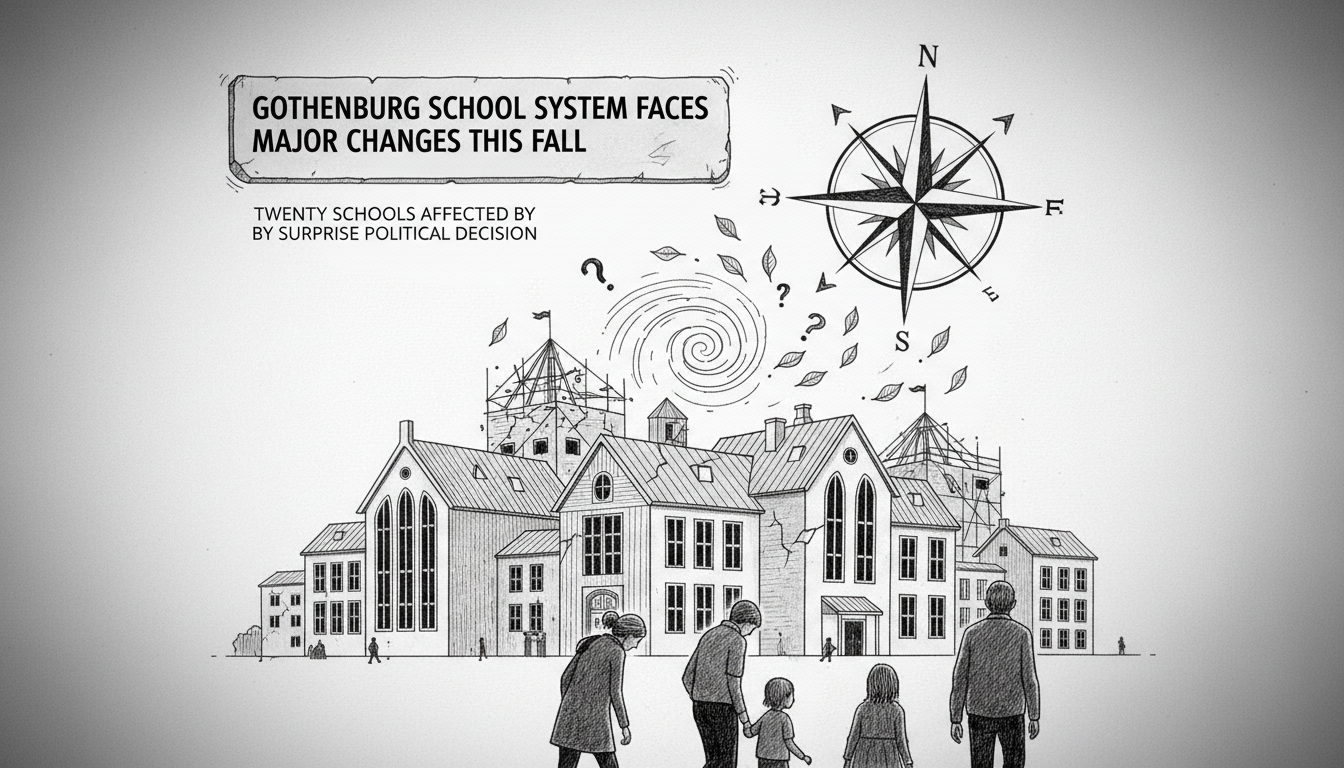Gothenburg's education system is undergoing significant transformation. The city's elementary school administration initially recommended closing five schools. They cited declining student numbers as the primary reason. This proposal followed multiple investigations into the school system's future.
Then a surprising development occurred. The red-green political coalition approved a completely different plan. This decision came during the final voting session. The new plan affects approximately twenty schools across the city.
Opposition politicians express serious concerns about the sudden change. They argue the approved plan lacks proper investigation. Jessica Blixt from the Moderate Party calls this pure political maneuvering. She describes it as politics at its worst. The opposition warns about potential serious consequences for students and families.
Gothenburg faces a common Nordic urban challenge. Many European cities experience shifting population patterns. School systems must adapt to changing demographics. This often involves difficult decisions about school closures and consolidations.
What makes this situation particularly noteworthy? The administration spent considerable time studying the issue. Their recommendation reflected careful analysis of demographic trends. Then political leadership chose a different path entirely. This creates uncertainty for parents, teachers, and students.
The decision affects neighborhoods across Sweden's second-largest city. Families now face uncertainty about their children's education. Teachers wonder about their job security. School administrators must implement changes with limited preparation time.
Why does this matter beyond Gothenburg? It demonstrates how political considerations can override administrative recommendations. The case shows the tension between demographic reality and political expediency. Other Nordic cities facing similar challenges will watch this situation closely.
What happens next? The affected schools must implement changes before the autumn term. Parents need clear information about which schools their children will attend. Teachers require details about potential reassignments. The city administration faces the challenge of executing a plan they didn't originally recommend.
The political fallout could extend beyond education policy. Voters may judge coalition members on how they handle this transition. The opposition will likely monitor implementation closely. They will highlight any problems that emerge during the process.
This situation reflects broader questions about urban planning in Nordic countries. Cities must balance demographic reality with community preferences. They face the challenge of maintaining quality education while managing resources efficiently. The Gothenburg case provides a compelling example of these tensions playing out in real time.

